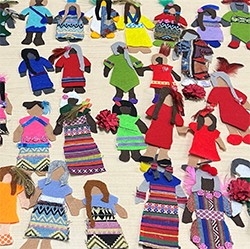Content Warning: This page discusses topics that may be distressing for some individuals. If you require immediate support, please contact the national, independent, toll-free 24/7 MMIWG2S+ support line at 1-844-413-6649. This service is available in English, French, Cree, Anishnaabemowin (Ojibway), and Inuktitut.
The Looking Out for Each Other Helpline (1-833-MMI-FIND / 1-833-664-3463) also serves as a support, information, and referral service system to help families navigate various systems when a loved one goes missing. MMIFIND stands for Missing and Murdered Indigenous Families In Need of Direction.

